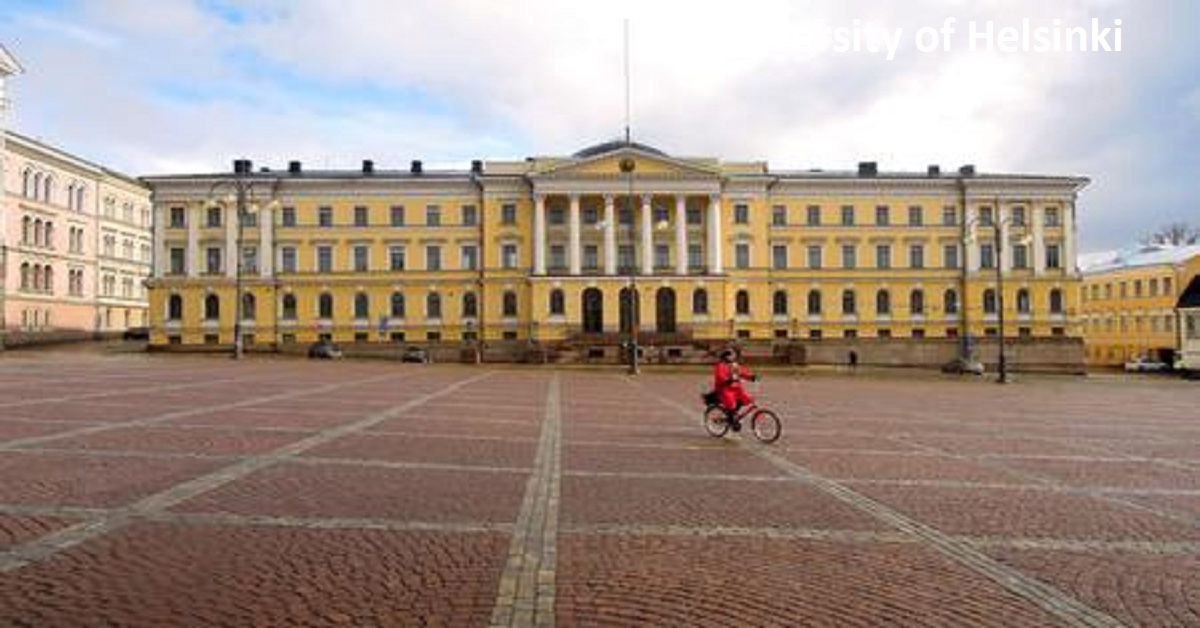The University of Helsinki is an international scientific community of 40,000 students and researchers. It is one of the leading multidisciplinary research universities in Europe and ranks among the top 100 international universities in the world.
The Faculty of Veterinary Medicine is the only institution of higher education in Finland to train veterinarians. It has about 750 undergraduate and postgraduate students and employs about 150 academic staff, which is about a half of the total staff number. The degree programmes have been accredited in accordance with the European System of Evaluation of Veterinary Training (ESEVT). The Faculty has four departments (Food Hygiene and Environmental Health, Equine and Small Animal Medicine, Production Animal Medicine, Veterinary Biosciences) and Veterinary Teaching Hospital. Veterinary Teaching Hospital is an essential part of research and teaching environment for clinical veterinary science.
The Faculty of Veterinary Medicine invites applications for the position of a
DOCTORAL STUDENT
The appointment is part-time (50 %) for 4 years with a preferred starting date of 1 September 2021. The position will be filled with a 6 month probationary period.
The appointment is at the Department of Equine and Small Animal Medicine. Research group FaunaFysio is looking for a doctoral student for a new research project. The project studies the effect of pulmonary physiotherapy on acute and chronic respiratory diseases on horses and dogs, and it is funded by the Academy of Finland.
The appointee will perform research in the project. The appointee may also supervise undergraduate students (veterinary licentiate projects) and be involved in other discipline-specific teaching. Teaching tasks can account for up to 5 % of the annual working time.
Requirements and expectations
The applicant should have either a DVM or a physiotherapist qualification, and in case of a physiotherapist, Master of Science degree in veterinary physiotherapy. The applicant is also expected to have practical experience with either equines, small animals, or both. Especially clinical experience of pulmonary diseases and intensive care unit work either with humans or animals is an asset in this position. Due to the clinical nature of the project, ability to communicate in Finnish language with the clients is a benefit.
Right to pursue a doctoral degree
The appointee must obtain the right to pursue a doctoral degree at the Faculty of Veterinary Medicine, University of Helsinki and approval by a suitable doctoral programme by the end of the 6 month probationary period of the employment, unless having already existing study right. Most suitable doctoral programme would be Doctoral Programme in Clinical Veterinary Medicine. The research plan and other application material will be prepared together with the PhD supervisor(s) in the beginning of the employment period.
Salary and benefits
The salary is based on the job requirement scheme for teaching and research staff according to the salary system of the Finnish universities and includes a personal salary component. Doctoral students start from requirement level 2. In total, the starting gross salary of a doctoral student is typically about 2200-2400 EUR per month, when having a part-time employment. In a 50 % part-time position, the monthly starting gross salary is thus about 1100 – 1200 EUR.
The requirement level of a doctoral student is determined on the basis of progressing in the studies. Doctoral students advance to level 3, when they are in the midpoint of completing the work required for the doctoral degree, and eventually to level 4, when the supervisor estimates that the student can publicly defend the dissertation in approximately one year.
Occupational health care is provided for university employees. Read more about the employee benefits at the University of Helsinki: https://www.helsinki.fi/en/about-us/careers.
Application to the position and attachments
Please submit your application through the University of Helsinki Recruitment System via the button Apply for the position. Applicants who are employees of the University of Helsinki should submit their application via the SAP HR portal. Please fill in only a few of mandatory fields (*) in the Recruitment System, and include the required attachments (in Finnish or in English): a motivation letter (maximum of one page), and a relevant CV (maximum of two pages). You will receive an automatic confirmation email, when you have successfully submitted your application.
The closing date for applications is August 1st, 2021 (23:59 EET).
Further information (please note that July is a typical holiday month in Finland) about:
• the project and position: docent, principal investigator Dr. Heli Hyytiäinen: heli.hyytiainen(at)helsinki.fi
• applying or technical support: HR Specialist Heidi Kauppinen, heidi.m.kauppinen(at)helsinki.fi, +358504155341 or HR Specialist Alina Kurppa, alina.kurppa(at)helsinki.fi
• Faculty of Veterinary Medicine: https://www.helsinki.fi/en/faculty-of-veterinary-medicine
• Veterinary Teaching Hospital: https://www.helsinki.fi/en/veterinary-teaching-hospital
• University of Helsinki: https://www.helsinki.fi/en/about-us/careers
• Application process to doctoral education (including demonstration of language proficiency): https://www.helsinki.fi/en/admissions-and-education/apply-doctoral-progr...
• About doctoral schools and programmes: https://www.helsinki.fi/en/admissions-and-education/apply-doctoral-progr...
Due date
01.08.2021 23:59 EEST

